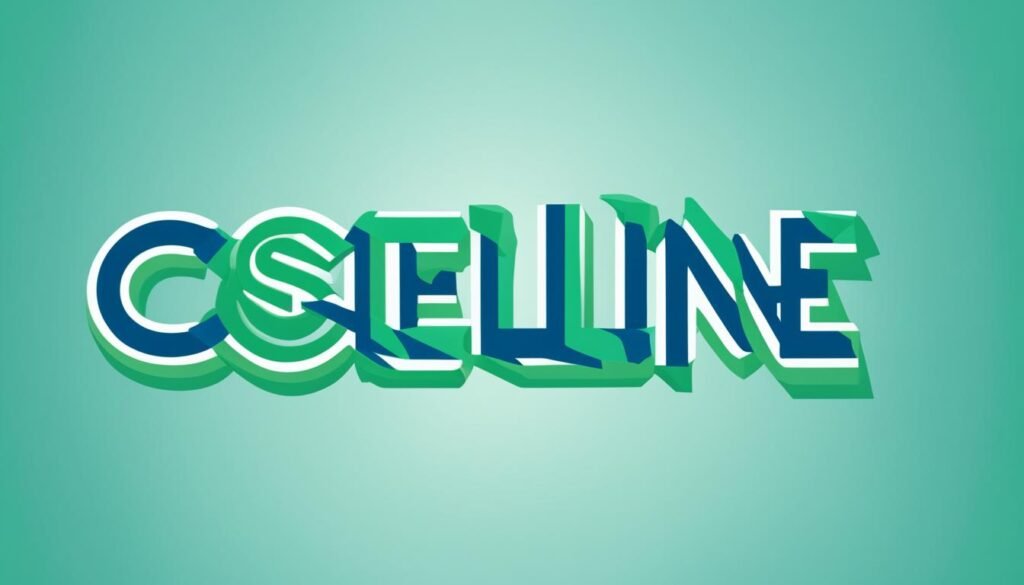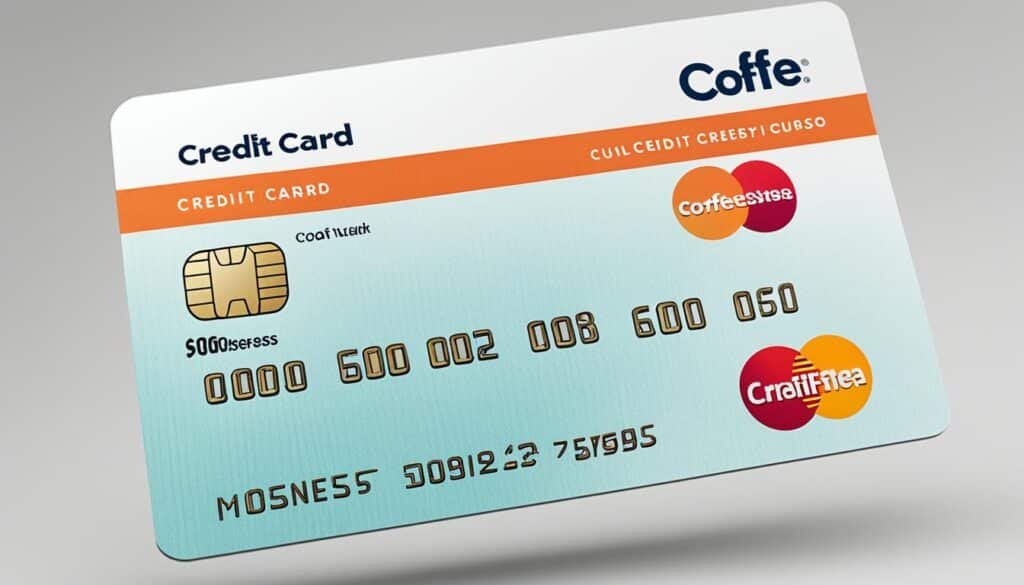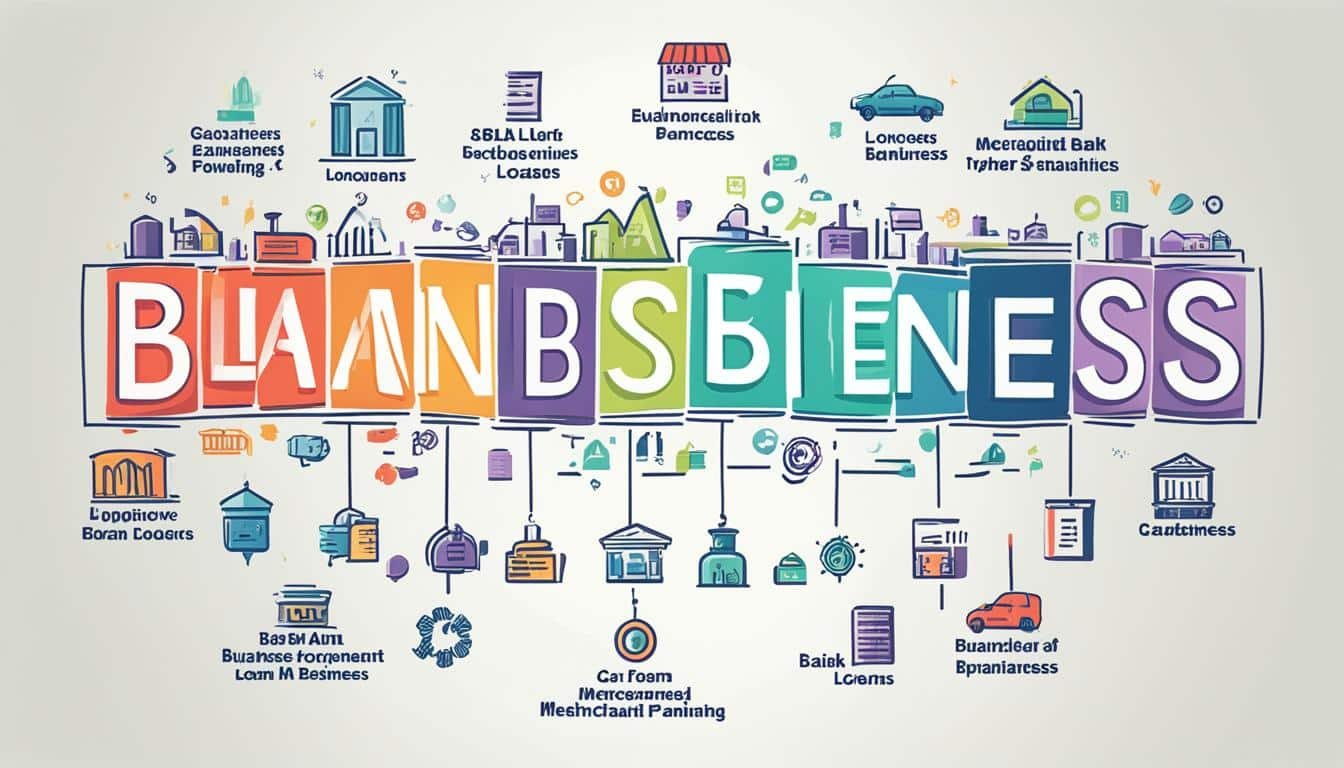For business owners, figuring out business financing can seem tricky. But, knowing about the types of business loans can guide you. It allows you to pick options that will help your company grow and achieve success. There are various choices, including small business loans and business line of credit options.
Each type of business loan is unique. They have different features, requirements, and ideal uses. If you need funds for new equipment, managing expenses, or boosting working capital, there’s a fit for your needs. Your task is to assess your financing needs well. Then, compare the different types of business loans to find what’s best for your small business.
Key Takeaways
- There are numerous types of business loans available, including term loans, SBA loans, business lines of credit, equipment financing, and invoice factoring.
- Each type of business loan has its own unique features, qualifications, and best use cases, so it’s important to carefully evaluate your financing needs.
- Small business loans can help business owners access the capital they need to support their company’s growth and success.
- Understanding the different types of business loans can help you make an informed decision to find the right loan option for your business finance requirements.
- The types of small business loans available can vary depending on factors like your business’s financials, credit history, and specific needs.
Types of Business Loans
Looking through the variety of business financing options can be tricky for anyone. Yet, grasping the common types of business loans and their features is key. It helps in picking the right loan for your business needs. Ranging from term loans to invoice financing, there are many forms of business financing.
One favorite is the term loan. It gives you a big sum up front to pay back over time. Good for business expansion and managing cash flow. SBA loans from the Small Business Administration are also versatile. They can cover working capital, buying assets, and smaller funding needs.
Now, businesses with variable expenses might like a business line of credit. It offers funds when you need them. Then, there are equipment loans. They help fund big business equipment buys, using the gear as security.
But don’t forget new ways to borrow, like invoice factoring or merchant cash advances. They bring fresh business financing options. Weighing the types of business, business needs, and available loans is crucial. It guides you to the right loan for your business.
Term Loans

A business term loan gives you a lump sum of money right away. You pay it back over time with interest. Usually, you make monthly payments. It’s often a good option for small businesses. But, getting the best deals can be hard.
Best for Business Expansion
If you want to grow your business, consider a term loan. It helps you fund projects for growth. Since you know exactly what you’ll pay each month, it’s easier to budget and plan your company’s future.
Established Businesses with Good Credit
To get the best rates on a term loan, your business needs a good track record. This means being around for at least two years and having a solid credit score. Banks usually have the lowest rates, but they set high standards.
Fixed Monthly Payments for Cash Flow Management
The best part about a business term loan is knowing your monthly costs won’t change. This stable cost can help you manage your money better. For growing companies, using these loans for big projects or buying equipment makes sense.
SBA Loans

The Small Business Administration (SBA) helps small businesses get the money they need. They offer various loan programs. These loans can help with many things, like getting cash to run the business, buying equipment or space, and other small costs.
SBA 7(a) Loans for Working Capital
The SBA 7(a) loan program is very popular and flexible. It’s for expenses like daily costs, buying more goods, or paying wages. Because the government backs part of the loan, it’s easier for smaller businesses to get one.
SBA 504 Loans for Fixed Asset Purchases
The SBA 504 loan program is for buying big things like property or equipment. These loans have low, fixed interest rates and help with expanding or updating a business.
This program works with local partners, like Certified Development Companies (CDCs), and private lenders.
SBA Microloans for Small Funding Needs
The SBA also gives out microloans for smaller amounts, up to $50,000. These microloans can be used for many things, from daily expenses to buying tools or machines.
They’re given out by non-profit lenders. They have shorter pay-back times and are easier to get than regular bank loans.
Business Lines of Credit

A business line of credit offers flexible financing for companies. It gives access to a set amount of funds. You pay interest only on what you use, just like a credit card. Once you pay it back, the money is available again. This is handy for managing variable expenses and cash flow.
Flexible Access to Funds
A business line of credit is different from a term loan. You can use it on and off, up to the credit limit. This is great for companies with changing cash flow or varied expenses. As you pay back, those funds become available again. It’s a reliable source of working capital.
Managing Variable Expenses
This line of credit is perfect for dealing with changing costs. For example, buying seasonal products or hiring temporary workers. With it, you can cover expenses without emptying your bank account. It helps keep your cash flow steady and your business running smoothly.
Equipment Loans
For big equipment buys, equipment loans are a great choice. They help businesses get vital things like semi-trucks. Unlike other types of loans, it’s often easier to get equipment financing. This is because the equipment itself is the loan’s security.
Financing Major Equipment Purchases
Equipment loans let businesses buy key business equipment without using up all their cash. They can pay off the equipment over time. This helps keep money free for daily needs. The loan’s cost and terms change based on how a business is doing and its credit. But, equipment loans are an easier way to make major purchases compared to other loans.
Invoice Factoring

Invoice factoring, also known as accounts receivable factoring, gives a special way for businesses to get quick cash. They can sell their unpaid customer invoices to get immediate funds. This helps especially when traditional loans are not easy to get, maybe because of bad credit or few collateral options.
Fast Cash for Unpaid Invoices
Through invoice factoring, businesses can turn their unpaid bills into money they can use right away. A factoring company will buy most of the invoice, usually 80-90% of it. This gives businesses a quick cash boost. After the customer pays, the factoring company then pays the business the rest, minus their fees.
This method helps businesses keep their cash flow steady. They can use the money to buy more inventory or pay their workers.
Alternative for Businesses with Poor Credit
Invoice factoring is a great choice for businesses with poor credit not able to get traditional loans. Most factoring companies look more at the credit of the business’s customers than the business’s credit itself. This opens a door for those with bad credit or who lack much to put up as collateral. It’s a different way to get the funds they need.
Invoice Financing

Invoice financing provides a unique way to get cash for your business. Unlike a straight loan, you keep control of your unpaid bills. This helps your business get the money it needs without losing control.
Maintain Control over Invoices
With this method, you offer your unpaid invoices as a guarantee. You get a loan based on this, keeping your invoices. You stay in charge of bill collection and talking to your clients.
Short-term Cash Flow Solution
This financing is great for those brief times when you need cash. You can use your unpaid bills to get the money fast. It’s perfect for small businesses or new companies dealing with a cash crunch.
| Benefit | Description |
|---|---|
| Maintain Control | You keep control of your customer invoices, which is not true for factoring. |
| Rapid Funding | It offers quick cash, which is great for solving short-term cash flow problems. |
| Flexible Repayment | You pay back as your customers settle payments, making it more flexible than other loans. |
| Improve Cash Flow | It aids small businesses and startups in handling their cash flow and operation costs. |
Merchant Cash Advances

A merchant cash advance (MCA) isn’t exactly a small-business loan. It’s a different way to get quick funding for your business. This type of advance is given based on your credit card sales. You get a sum of money upfront. In return, the provider keeps a portion of your future sales.
Quick Funding Based on Credit Card Sales
You pay back an MCA through fixed daily or weekly deductions. Or, it can be a slice of your future credit card sales revenue. The second option means your payment amounts change. They will go up or down based on how much your business makes from card payments.
Last Resort for Businesses with Limited Options
Getting approved for an MCA focuses more on your business’s revenue. It’s not all about your personal credit or assets. This makes MCAs an option for businesses with limited financing options. But, be aware, they are often quite expensive. Their interest rates can be very high. It’s usually better to look at other small-business loan choices before you consider an MCA.
Personal Loans for Business

Personal loans are a good choice for startups and new businesses. If your company is new and your financial history is short, they might be your best option. They usually offer good rates and terms.
Suitable for Startups and New Businesses
Personal loans for business use are perfect when traditional lenders say no. They are great for startups and new business owners. This is because they don’t require the same track record as regular business loans.
This type of loan helps when your business is too young for traditional loans.
Potential Credit Impact for Business Owners
Yet, choosing a personal loan for business can be risky. It affects your personal credit. If you miss payments, it shows up in your credit score.
Business Credit Cards

Business credit cards are a go-to for managing ongoing business expenses. They let business owners buy items, earn rewards, and boost their business credit score. These cards offer more than personal ones. They have bigger credit limits, travel benefits, and more to suit a growing business’s needs.
Businesses needing flexible finance find business credit cards very useful. They offer a way to get money when needed. This helps businesses pay for things and seize chances without a fixed loan repayment plan. Using one responsibly also makes getting bigger loans or credit lines in the future easier.
| Feature | Benefit |
|---|---|
| Revolving Credit Line | Access to funds as needed for ongoing business expenses |
| Business-Specific Rewards | Earn points, miles, or cash back on purchases relevant to your business |
| Higher Credit Limits | Accommodate larger business credit needs compared to personal cards |
| Build Business Credit | Responsible use can improve your company’s business credit profile |
In summary, business credit cards offer flexible finance for businesses. They provide quick access to funds, rewards, and a way to enhance business credit history. Knowing the perks and features of these cards lets business owners choose wisely. They can decide if a business credit card is right for covering ongoing business expenses.
Startup Loans

Getting money to start a business has many ways. You can get startup business financing from an SBA microloan, online loans, or business credit cards. Each option has different costs like interest rates and fees. It’s smart to look at several loan options before making a choice.
Funding for New Businesses
For new businesses that can’t yet get a regular loan, startup loans are key. These loans are made in a way that helps startup companies. They don’t ask for as much in terms of qualification requirements and you get the money faster.
Easier Qualification Requirements
Startup loans are easier to get than other types of business loans. If your business hasn’t been around long, doesn’t make much money, or has bad credit, you might still be able to get a loan. This helps new businesses to find the money they need.
Microloans
Microloans are designed for small businesses and underserved business owners. They provide a financing option for those who need up to $50,000. This fund helps small businesses and entrepreneurs not able to get a regular small business loans.
Small Loan Amounts for Underserved Businesses
Getting microloans is simpler than with larger loans. They have easier requirements and must be paid back quicker. This makes them great for underserved businesses, like women, minorities, and those with less access to usual small business funding. With low rates and flexible terms, microloans can really help these small businesses move forward.
Nonprofits often give out microloans to help in community growth and economic boost. They offer small loans along with advice and support. This support is key for small business owners facing hurdles in getting traditional small business loans. Their help plays a big role in helping underserved businesses succeed and enriching the economy for everyone.
Also Read : How Do I Get A Business Loan?
Conclusion
There are many different types of business loans. Each has its own features, requirements, and best uses. You can choose from term loans, SBA loans, lines of credit, equipment financing, and invoice factoring. The key is to pick what fits your small business or commercial venture best.
To find the best loan for your company, you should carefully look at what you need. Compare the good and bad of different loans. Whether you need working capital, money for a new business, or to buy big equipment, knowing your financing options is crucial. It helps you make a smart choice that supports your goals.
The loans out there offer a wide range of business financing solutions. They can fit the needs of companies of any size and stage. By looking at what’s available and choosing wisely, you get the help you need. This can move your small business or commercial enterprise ahead.
FAQs
Q: What are the types of business loans?
A: There are several types of business loans available to your business, including small business loans, real estate loans, commercial real estate loans, working capital loans, equipment financing, and short-term loans. Each type of loan is designed to meet different business needs and can help you grow your business.
Q: How can a small business loan help my business?
A: A small business loan can provide the capital your business needs to expand, purchase equipment, hire more staff, or cover unexpected expenses. It can also help you build credit and strengthen your business financials.
Q: What is the difference between a working capital loan and a capital loan?
A: A working capital loan is used to cover day-to-day operational expenses, such as payroll and inventory, while a capital loan is typically used to finance long-term investments, such as purchasing real estate or expanding your business.
Q: How do I know which loan option is right for my business?
A: To determine the right loan for your business, consider factors such as your business’s financial situation, the purpose of the loan, the loan term, and whether you can provide collateral to secure the loan. It’s also important to compare options and choose a loan that aligns with your business goals.
Q: What are the benefits of a short-term business loan?
A: Short-term business loans are a popular type of financing for businesses that need quick access to capital. These loans typically have shorter repayment terms and can help businesses bridge cash flow gaps, cover seasonal expenses, or take advantage of growth opportunities.
Q: What should I consider when applying for a business loan?
A: When applying for a business loan, consider factors such as your business’s time in operation, business financials, credit history, business plan, and the purpose of the loan. It’s also important to compare loan options and choose a loan that is right for your business.
Q: Are there different types of business loans for existing businesses and new businesses?
A: Yes, there are different types of business loans available for existing businesses and new businesses. Existing businesses may have more options for financing, while new businesses may need to provide additional documentation, such as a business plan, to secure a loan.
Source Links
- https://www.forbes.com/advisor/business-loans/types-of-business-loans/
- https://www.bankrate.com/loans/small-business/types-of-business-loans/
- https://www.nerdwallet.com/article/small-business/types-of-business-loans





